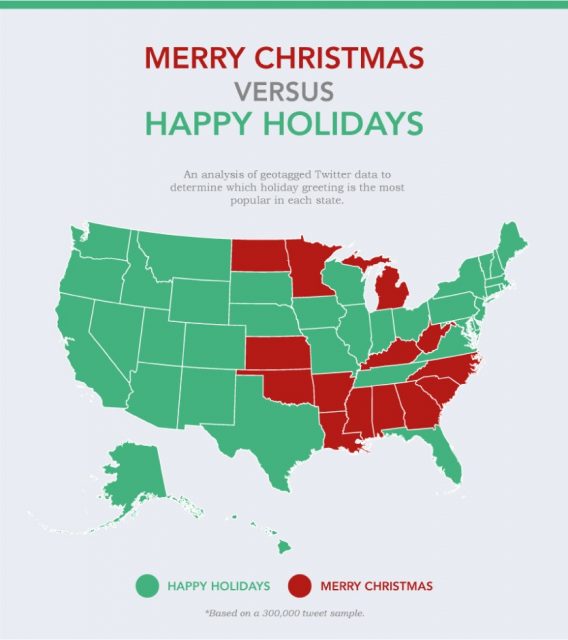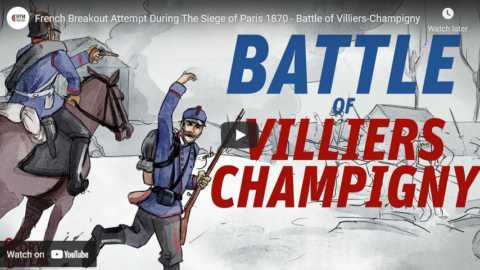Real Time History
Published 2 Dec 2021Sign up for Curiosity Stream and get Nebula bundled in and SAVE 26%: https://curiositystream.com/realtimeh…
The Siege of Paris has been going on for months in November 1870 and the population is starving. The French Army has previously tried and failed to break out but this week they are starting their biggest attempt yet — not knowing that it has been doomed from the start.
» THANK YOU TO OUR CO-PRODUCERS
John Ozment
James Darcangelo
Jacob Carter Landt
Thomas Brendan
James Giliberto
Kurt Gillies
Albert B. Knapp MD
Tobias Wildenblanck
Richard L Benkin
Scott Deederly
John Belland
Adam Smith
Taylor Allen
Jim F Barlow
Rustem Sharipov» OUR PODCAST
https://realtimehistory.net/podcast – interviews with historians and background info for the show.» LITERATURE
Arand, Tobias: 1870/71. Der Deutsch-Französische Krieg erzählt in Einzelschicksalen. Hamburg 2018Ders.: “Rogerowski oder Rasumowsky? Überlegungen zur nationalen ‘Meistererzählung’ in Fontanes ‘Kriegsgefangen’“, in: Fontane-Blätter 105 (2018). S. 61-86
Ders.: “‘… dazu find ich keine Worte’ – Der Blick auf den Krieg von 1870/71 in Erinnerungsbüchern deutscher Veteranen“, in: Nation im Siegesrausch. Württemberg und die Gründung des Deutschen Reichs 1870/71, hrsg. u. bearb. von W. Mährle. Stuttgart 2020. S. 85-98
Bourguinat, Nicolas and Gilles Vogt: La guerre franco-allemande de 1870. Une histoire globale. 2020
Gouttman, Alain: La grande défaite. 1870-1871. Paris 2015
Lecaillon, Jean-François: Les Femmes et la Guerre de 1870/71. Histoire d’un engagement occulté. Paris 2020
» SOURCES
Hérisson, Maurice d’: Journal d’un officier d’ordonnance. Paris 1885De Trailles, Paul et Henry: Les femmes de France pendant la guerre et les deux sièges de Paris. Paris 1872
Fontane, Theodor: Der Krieg gegen Frankreich. Bd. 3. Berlin 1874
Fontane, Theodor: Kriegsgefangen. Erlebtes 1870. Briefe 1870/71. Berlin (Ost) 1984
Kühnhauser, Florian: Kriegs-Erinnerungen eines Soldaten des königlich bayerischen Infanterie Leibregiments. Partenkirchen 1898
N. N. (Hrsg.): Bismarcks Briefe an seine Gattin aus dem Kriege 1870/71. Stuttgart, Berlin 1903
Schikorsky, Isa (Hrsg.): “Wenn doch dies Elend ein Ende hätte”, Ein Briefwechsel aus dem Deutsch-Französischen Krieg 1870/71. Köln, Weimar, Wien 1999
Wöllwarth, Julie von: Unter den Verwundeten von 1870/71. Aufzeichnungen aus einer großen Zeit. o.O, o.J. (1890)
Zola, Émile: La Débacle. Paris 1892
» OUR STORE
Website: https://realtimehistory.net»CREDITS
Presented by: Jesse Alexander
Written by: Cathérine Pfauth, Prof. Dr. Tobias Arand, Jesse Alexander
Director: Toni Steller & Florian Wittig
Director of Photography: Toni Steller
Sound: Above Zero
Editing: Toni Steller
Motion Design: Philipp Appelt
Mixing, Mastering & Sound Design: http://above-zero.com
Maps: Battlefield Design
Research by: Cathérine Pfauth, Prof. Dr. Tobias Arand
Fact checking: Cathérine Pfauth, Prof. Dr. Tobias ArandChannel Design: Battlefield Design
Contains licensed material by getty images
All rights reserved – Real Time History GmbH 2021
December 3, 2021
French Breakout Attempt During The Siege of Paris 1870 – Battle of Villiers-Champigny
A bureaucratic mandate for never-ending intervention — induced offensensitivity
Theodore Dalrymple notes the increasing reach of the bureaucracy in policing everyday language in a supposed attempt to protect the easily offended feelings of minority groups, but really in yet another way to increase the role of bureaucrats (and their staffing and budget allocations):

Original infographic from Treetopia – https://www.treetopia.com/Merry-Christmas-vs-Happy-Holidays-a/304.htm
Underlying the bureaucratic desire to reform language are two assumptions: first that it is the duty of bureaucrats to prevent offense to people occasioned by the use of certain words, and second that they know what words will give offence to people.
Of course, there are only certain categories of people who needed to be protected from taking offence: that is because, in the estimate of their would-be and self-appointed protectors, they are very delicate and can easily be tipped into depression or states of mind even worse than depression.
Whether it is flattering, condescending or downright insulting to consider people so delicate that they cannot hear certain words that were hitherto considered innocuous, I leave to readers to decide. For myself, I think that to regard people as psychological eggshells is demeaning to them, but other may think differently.
But the question still arises as to whether the people supposedly in need of bureaucratic intervention actually do take offence at the allegedly offensive words, such as Christmas, when they are uttered.
This is not as straightforward a question as might at first appear, for people can be taught or encouraged to be easily offended, especially if they will derive certain advantages, political, social or even financial, from being, or claiming to be, offended. If you pay someone to be ill, he will be ill; if you pay someone to be offended, he will be offended.
It is in the interests of bureaucracies that the population should become hypersensitive, for then it will run to the bureaucrats for so-called protection from offensiveness.
A hypersensitive population creates endless work for the bureaucrat to do: he will have constantly to adjudicate between the claims of those who have taken, and those who have allegedly given, offence. Conflict and stoked-up anger are to him what fertilizer is to corn.
For much of the population, hypersensitivity becomes a duty, a pleasure and a sign of superiority of mind and moral awareness. In addition, it is an instrument of power. And, of course, habit becomes character. What may have started out as play-acting becomes, with repetition, deadly sincerity.
People who have had to be taught what microaggressions are because they have not noticed them eventually come to believe in their reality and that that they have been subjected to them. Then they start to magnify them in their minds until they seem to them very serious: they become self-proclaimed victims.
There are two things that victims seek in our law-saturated world: revenge and compensation. Neither of these things can be achieved without the aid of a large apparatus of bureaucrats (civil-litigation lawyers are bureaucrats of superior intelligence who are usually endowed also with a modicum of imagination).
Australian-American War of 1942 – The Battle of Brisbane
World War Two
Published 2 Dec 2021America shares a language and large parts of its culture with Britain and Australia. But when tens of thousands of US troops arrive in 1942, things will be far from smooth. While the alliance remains firm, their soldiers will spend almost as much time fighting each other as they do the Axis.
(more…)
“Power corrupts and absolute power …” is something governments are not eager to give up, post-pandemic
Miguel Castaneda quotes Lord Acton’s famous aphorism (which I truncated in my headline) and warns of the consequences of giving governments too much power:
“Power corrupts and absolute power corrupts absolutely”. The words of Lord Acton, a fierce opponent of state power, are sadly no less relevant today than they were at his time of writing.
Over the past 20 months, the authoritarian approach of Western leaders has been justified by our representatives as a necessary response to a global emergency. Whether that’s true or not is up for discussion, however, one thing remains clear: such attitudes have handed governments a level of power that, left unchecked, severely curtails individual rights.
This path is not unique to the UK, nor is it unique to Europe. We’re seeing a near global normalisation of state overreach. Lockdowns in many liberal democracies have been brought in suddenly and without thorough scrutiny.
In this country, at no point were other methods to address the pandemic tested. They were barely even suggested. And with little counter from the mainstream media, the UK and others have normalised shutting down the country for the purpose of virus control.
It was only a few months ago that Australia locked over 5 million people after identifying a single case. A severe overreaction which likely contributed to the dramatic fall in Australian Prime Minister Scott Morrisson’s approval ratings of the handling of the pandemic, which fell from 85 per cent at the start of the pandemic to 47 per cent in the latest poll in August.
A commonly overlooked consequence of these authoritarian practices is the precedence it sets for how governments can and should act when faced with novel challenges. It has been predicted that future pandemics will become more frequent, and perhaps more deadly. Are we going to react again by shutting entire populations in their homes?
Looking to the continent, the ease at which governments are bringing in authoritarian measures should be an international scandal. Take Austria, where a national lockdown has just been extended until at least December 11th. Or Germany, which has announced today a de facto lockdown for the unvaccinated, and is debating bringing in a policy of mandatory vaccinations.
This extreme way of thinking is a new virus spreading across the Western world. Spain, France, Italy, Greece and Australia have all seen similar policies introduced.
The Battle of the Trebia River (218 B.C.E.)
Historia Civilis
Published 12 Jun 2015Patreon | http://historiacivilis.com/patreon
Donate | http://historiacivilis.com/donate
Merch | http://historiacivilis.com/merch
Twitter | http://historiacivilis.com/twitter
Website | http://historiacivilis.comMusic is Beethoven’s “Sonata No. 11 in B Flat Major Op. 22” – I. Allegro con brio. Performed by Daniel Veesey
QotD: Questionable legal tactics
This is what I like to call a “reverse insanity defense”. You raise the defense in the hope that the judge is certifiably out of his friggin’ mind and grants it. Sadly, it rarely gets clients off the hook. It is, however, an excellent method of destroying your credibility with the court.
Conrad, “The Reverse Insanity Defense”, The Gweilo Diaries, 2004-09-28.






